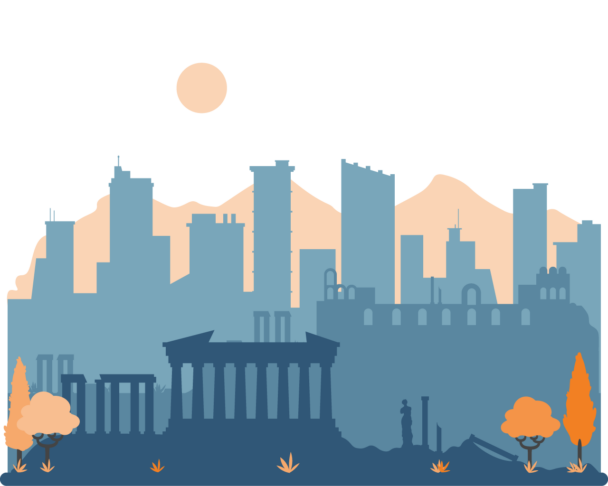Description
Basic Computer Proficiency required. Read more »
Basic computer proficiency courses are designed for individuals who have limited experience with technology. Participants will learn fundamental skills such as navigating the web, and using basic programs.
The fast-changing world of new technologies asks for a change in education and pedagogy.
Since schools are supposed to be the places that prepare students for the world outside of the classroom, teachers and students are becoming more and more challenged to adapt their teaching and learning to the integration of new technologies and artificial intelligence.
This course will explain the basic concepts of Artificial Intelligence in education and empower teachers to use basic AI tools, such as ChatGPT, to enhance teaching and learning. The participants will learn how to use AI tools to decrease the workload but at the same time how to be creative and actively engage students following the student-centred pedagogy concept.
During the course participants will learn to navigate the proposed AI tools, to share and discuss their ideas, and to create their own lesson materials. Furthermore, participants will be supported to innovate and create original tasks that will allow students to develop critical thinking, communication, and collaboration skills with the use of AI.
Moreover, the AI tools presented in this course will help teachers with lesson planning, differentiating teaching materials, and formative and summative assessment.
By the end of the course, participants will not only get a theoretical overview of the proposed AI tools but they will be actively involved in creating and preparing tasks with various AI tools.
Finally, all the tasks and ideas developed during the course will be shared in a common e-collection and will be accessible after the course as an AI guide in teaching practice.
This follow-up will raise the visibility of the participants’ Erasmus projects as well as a more comprehensive insight into the possibilities of the practical use of AI because it will be updated with every new course.
Please note: During this course, participants will do practical tasks which include the use of various AI tools. The list of tools will be regularly updated according to innovation and accessibility for schools and includes: ChatGPT, DeepSeek, Padlet, Canva, Google Earth, Twee, Quizalize, Claude, Mistral, and others. If you want to include any specific tool, please provide this information at least two months before the start of the course.
What is included
Learning outcomes
The course will help the participants to:
- Get a basic theoretical overview of AI in education;
- Use AI to decrease the workload;
- Understand the benefits and challenges of AI implementation in education;
- Design, implement, and assess AI-integrated lessons and activities;
- Use AI tools in interdisciplinary approaches and student-centered pedagogy;
- Learn how to engage students with the help of AI and thus secure their mental well-being;
- Develop tasks to enhance students’ transversal skills – communication, collaboration, and critical thinking become more digitally literate;
- Share their tasks and ideas in a common e-collection for a long-term follow-up.
Tentative schedule
Day 1 – Introduction to the course
- Introduction to the course, the school, and the external week activities;
- Icebreaker activities;
- Presentations of the participants’ schools.
The Basics of AI
- Ethics of AI;
- AI and well-being – student-centered pedagogy;
- How can AI be used for teachers’ and students’ well-being?
Day 2 – AI all around us
- Types of AI;
- AI in everyday life – what is there for teachers and students?
- Using AI in the pocket to create engaging lessons.
Day 3 – ChatGPT and other Generative AI tools
- Presentation of different AI tools suitable for various school subjects;
- Efficient prompting;
- Creating lesson materials and tasks for different subjects;
- Ideas for an interdisciplinary approach.
Day 4 – AI for students’ engagement
- Interactive use of AI to enhance students’ creativity, collaboration and communication;
- Differentiation with the help of AI;
- Sharing ideas.
Day 5 – AI and evaluation – linking outcomes and assessment
- Types of assessment – formative and summative assessment;
- AI and constructive feedback – rubrics for self- and peer-assessment;
- Presenting and sharing materials – creating an e-collection.
Day 6 – Course closure and cultural activities
- Course evaluation: round-up of acquired competencies, feedback, and discussion;
- Awarding of the course Certificate of Attendance;
- Excursion and other external cultural activities.












